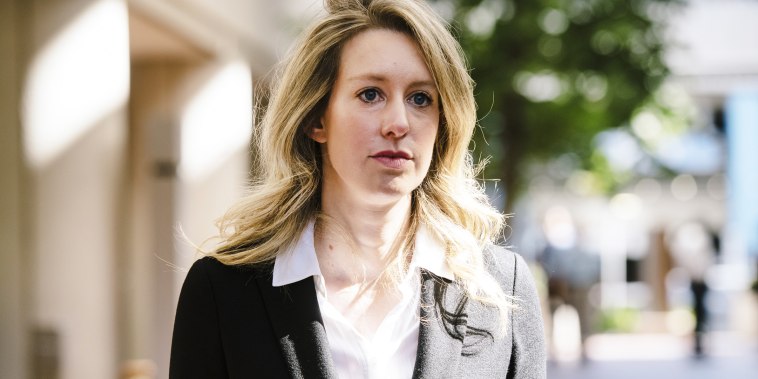Elizabeth Holmes, the founder and CEO of failed blood-testing company Theranos, has been sentenced to 11 years and 3 months in federal prison for her role in committing a years-long fraud that saw her company ascend to the heights of Silicon Valley before collapsing in disgrace.
Holmes was convicted in January of four counts of lying to Theranos investors about the company’s technology and its financial health. She faced a potential maximum of 20 years in prison.
“I regret my failings with every cell of my body,’ Holmes told the court prior to her sentencing. She then quoted a poem: “Yesterday I tried to change the world. Today I’m wise, and want to change myself.”
In his sentencing statement, Judge Edward Davila said the case was ‘troubling on so many levels.’
‘What went wrong? This is sad because Ms. Holmes is brilliant.”
The judge ordered Holmes to surrender to authorities on April 27, 2023.
The sentence closes one chapter of the Theranos saga, in which the failed blood-testing company came to be valued at as much as $9 billion before it collapsed in scandal and fraud.
Founded in 2003 by Holmes, then a student at Stanford University, Theranos managed to grow rapidly, thanks in part to unchecked hype and the charisma of its creator. Holmes successfully pitched investors and influential members of society, including two former senators and former Secretary of State Henry Kissinger, who became board members, that Theranos’ technology could use a drop of blood to instantly test for a host of medical conditions.
But the technology was faulty. Whenever someone would ask how Theranos could do what it purported to do, Holmes and others would respond that discussing the inner workings of their machines would reveal trade secrets. Theranos had simply repurposed commercially available blood analysis technology to run on smaller amounts of blood, The Wall Street Journal revealed in October 2015.
During Holmes’ trial, former employees testified that Theranos would also frequently delete erroneous results from its tests to make its machines appear more accurate. Theranos executives also submitted falsified company reports, including some showing inflated revenues and one in which Holmes added the logos of major drugmakers that were not actually associated with the company. The company also lied to investors about having its technology deployed in Afghanistan.
At its peak, the company won multimillion-dollar contracts with major companies like Walgreens and Safeway. That led to real world cases of false positives for customers: Arizona resident Erin Tompkins said during the trial that she got a false-positive result at a Walgreens for an HIV antigen, which caused her significant emotional distress. Another Theranos user said her medication was changed as a result of faulty test results, which led to a heart attack.
A 2015 audit of Theranos by the Centers for Medicare & Medicaid Services found “the deficient practices of the laboratory pose immediate jeopardy to patient health and safety.”
“She chose fraud over business failure. She chose to be dishonest,” lead federal prosecutor Jeff Schenk said in his closing argument. “That choice was not only callous; it was criminal.”
Holmes pleaded not guilty. Her defense centered on allegations against Ramesh “Sunny” Balwani, the former Theranos president and chief operating officer with whom she had a romantic relationship. Balwani was convicted of fraud in July. Holmes said Balwani lied to her about the company’s financial models and subjected her to intimate partner abuse.
Balwani is expected to be sentenced Dec. 7.

